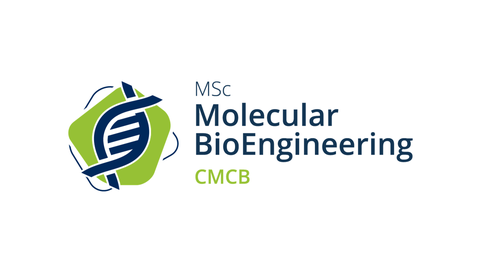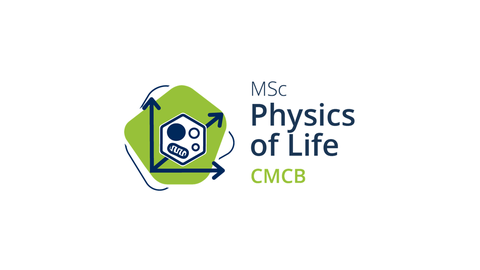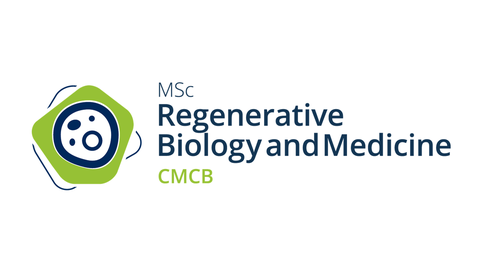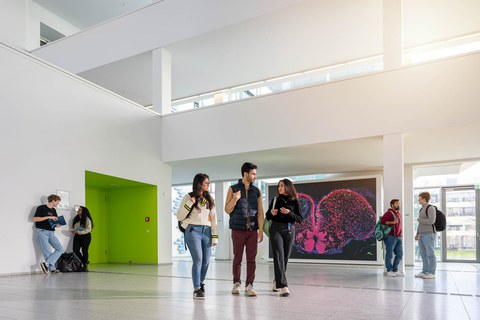Masterprogramme
The application period for the winter term 2025/26 is closed. The next application period will run from April 1 to May 31, 2026 for a start of the program in October 2026!
Get high-quality Master's education in life sciences at the CMCB!
As a teaching unit of TU Dresden, we offer three international Master’s (MSc) programs with research-oriented teaching based on the scientific expertise of the three CMCB institutes: B CUBE, BIOTEC, and the CRTD.
Inhaltsverzeichnis
Study Life Sciences at CMCB © TUD/Biermann-Jung Kommunikation & Film
Master's Programs
Molecular Bioengineering
Choose the Molecular Bioengineering MSc program if you’d like to stay at the forefront of modern life sciences and combine biology, biochemistry, biophysics, bioinformatics, materials science, and nanotechnology.
Physics of Life
What is life? Help answer this fundamental question while learning cutting-edge life science and combining biology and physics. Join the Physics of Life MSc program and develop a broad life science skillset that is founded on the intersection of biology, physics, applied mathematics, quantitative biology, and other fields.
Regenerative Biology and Medicine
Merge cutting-edge molecular biology with clinically-oriented human biology and pathology. Enroll in the Regenerative Biology and Medicine MSc program and dive into interdisciplinary curriculum that covers stem cell research, regenerative biology, molecular biology, tissue engineering, and clinically-oriented human biology and pathology.
Computational Modeling and Simulation
Interested in computational biology? We got you covered! Together with the Faculty of Computer Science and the School of Science, we offer a Computational Modeling and Simulation Master’s program.




